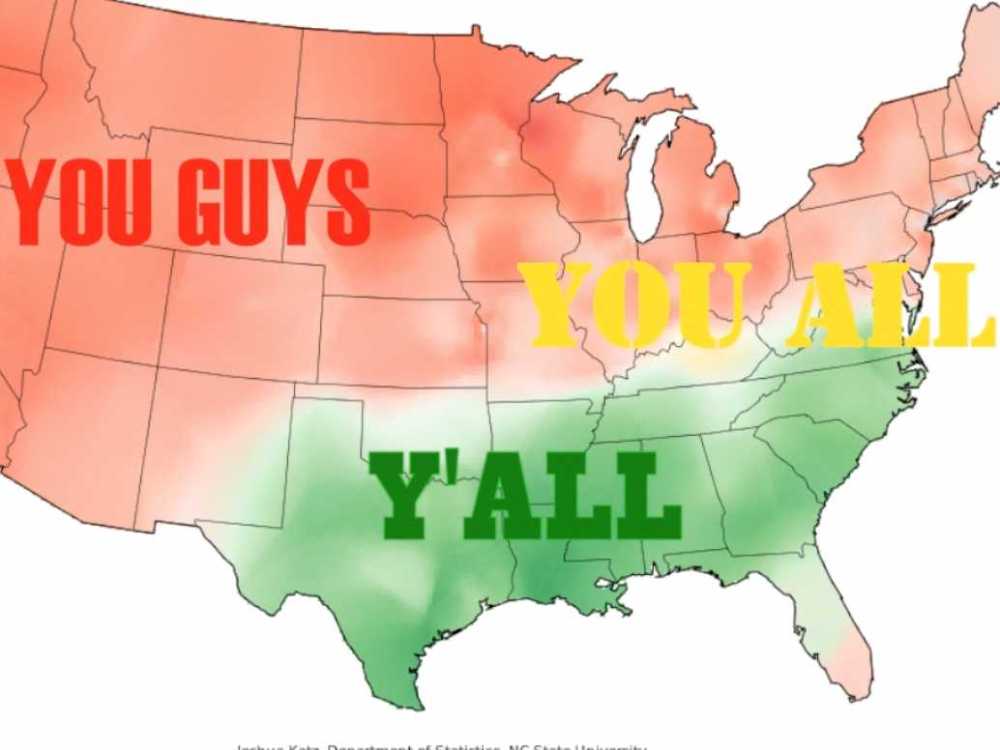 If you are a teacher, you will understand us. Every single day, the same question (or similar) happens when you teach English to Brazilian students . They often say: ‘Teacher, why do I have to say soda being that I have watched a sitcom that is different?… some characters said as pop in my favorite sitcom. What is it happening in this situation? Am I saying the wrong way? What word is it correct in these options?’. ‘No, you are not wrong, dear student… I will explain to you’, we (teachers) say.
If you are a teacher, you will understand us. Every single day, the same question (or similar) happens when you teach English to Brazilian students . They often say: ‘Teacher, why do I have to say soda being that I have watched a sitcom that is different?… some characters said as pop in my favorite sitcom. What is it happening in this situation? Am I saying the wrong way? What word is it correct in these options?’. ‘No, you are not wrong, dear student… I will explain to you’, we (teachers) say.
So, folks… KEEP CALM and finish reading if you recognized!
It is not a problem when students have doubts; you may solve it comparing with a good example in Brazilian Portuguese. Begin asking if they say ‘biscoito’ or ‘bolacha’. Now we have a mother tongue comparative for they understand about dialects.
Other similar situation happens when Brazilian people go to the USA. Someone will probably think that EVERYBODY speaks with the same pronunciation or same words in any region of the USA. When they (Brazilians) realize that it is not true, sometimes it is a language shook for them.
These are one of many examples about misunderstands in American English that we may quote. This post will be brief about American dialects. Sure, we will have a microscope vision on this blog, because it not possible to explain in just one post all kinds of dialects in USA, besides that, our purpose is to help Brazilian students about how we can improve our knowledge about this aspect.
Then, with we searched some funny examples posted in BuzzFedd website (you can see the link in the references) with objective to have fun and learn too. It is a webpage that show to users the difference between words in some American regions. In other words, Americans mean two or more ways to say the same thing (for example, what it was said below in ‘soda’ and ‘pop’). This kind of variety is very normal in any country, meanly if this place has a big territory like happens in the USA. And this variety is called by linguistic term dialect because represents a divergent geography origin according to sociolinguistics studies.
We will list some useful words that every Brazilian who knows how to speak American English should learn in each region of the USA, ilustrating through maps. They are:
1 – SODA or POP? To say ‘refrigerante’.
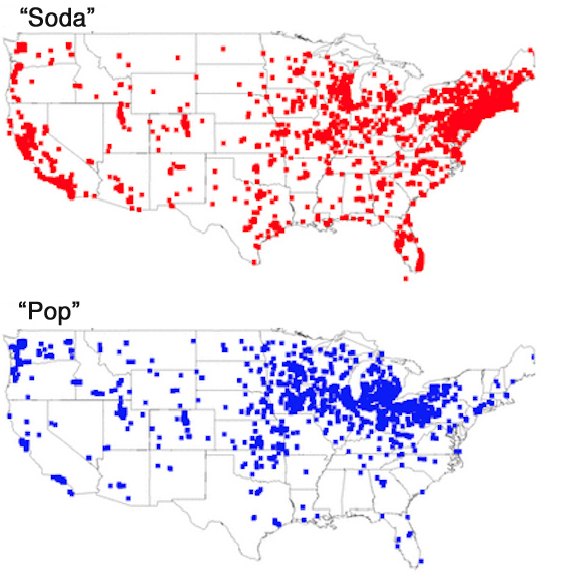
(http://www4.uwm.edu/FLL/linguistics/dialect/maps.html)
2 – TENNIS SHOES or SNEAKERS? To say ‘tênis’.
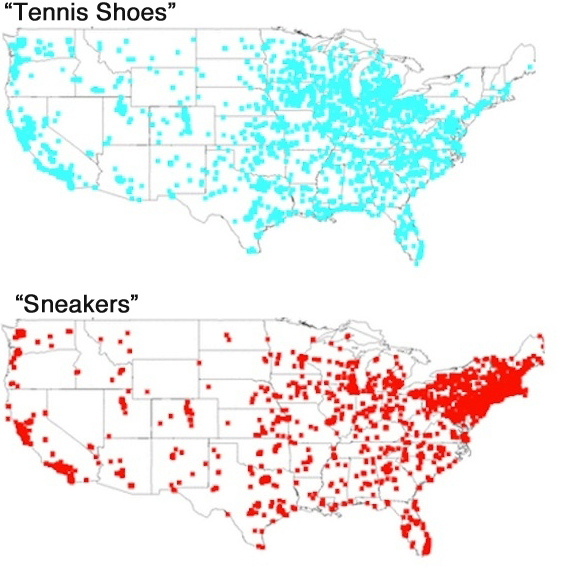
(http://www4.uwm.edu/FLL/linguistics/dialect/maps.html)
3 – BUBBLER or WATER FOUNTAIN? To say ‘bebedouro’.
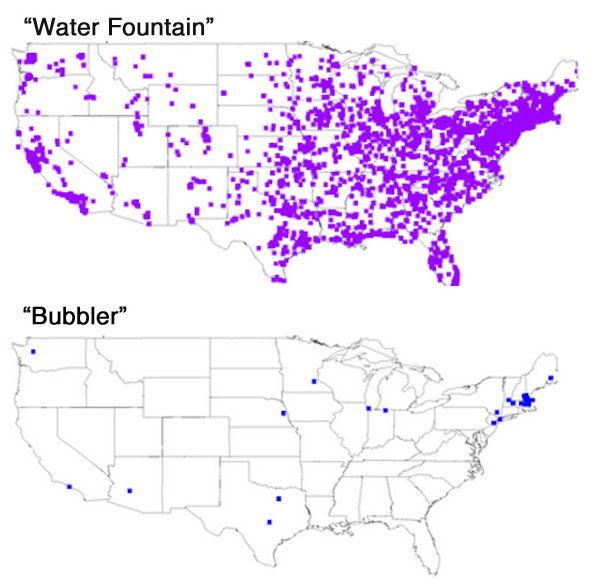
(http://www4.uwm.edu/FLL/linguistics/dialect/maps.html)
4 – GRANDMA or GRANNY? To say ‘vovó’.
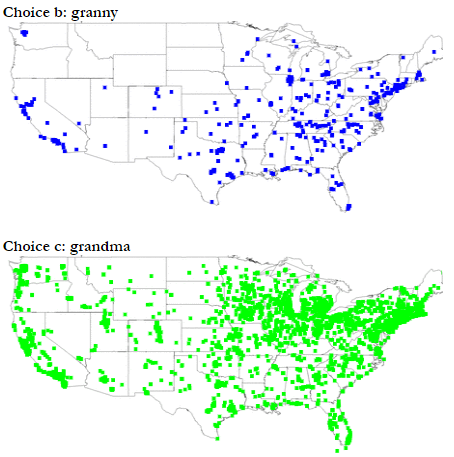
(http://www4.uwm.edu/FLL/linguistics/dialect/maps.html)
5 – TRASH CAN or GARBAGE CAN? To say ‘lata de lixo’.
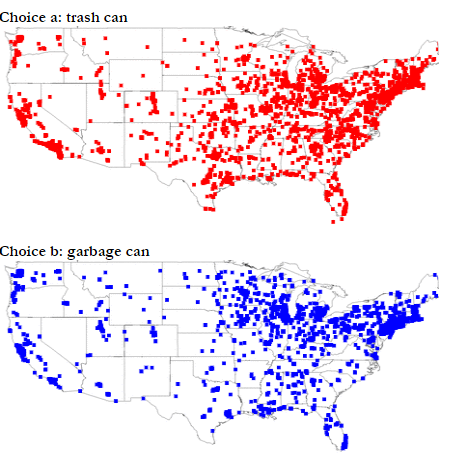
(http://www4.uwm.edu/FLL/linguistics/dialect/maps.html)
Coming back question again: what is the correct word of all these cited options? The answer is: it depends on your choice. Yes, you may say soda and/or pop, tennis shoes and/or sneakers, bubbler and/or water fountain, grandma and/or granny or even trash can and/or garbage can. The choice is yours and it will depend on several linguistics factors. One of them is regional, named as dialect.
In addition, we need to inform you that as any language, English also has high and low prestige to say one or other word according to region you are and situation too. In this case, it is good advice to tell that you maybe have to shift your verbal repertorie if you think important the change. This shift will be useful in your social life, for instance at work, school, home, church and so on.
Each person has a dialect that depends on several factors like regional, social, educational etc. A Brazilian student who will visit USA need to know a little about specific American dialects because it is better to him/her distinguish the regionalism of this language.
Informations about cited list were obtained from Harvard Dialect Survey, which concluded in 2003 (Vaux, Bert and Scott Golder. 2003). You can find the complete search on this website: http://dialect.redlog.net/ .
Other references:
https://www.ethnologue.com/country/US/maps